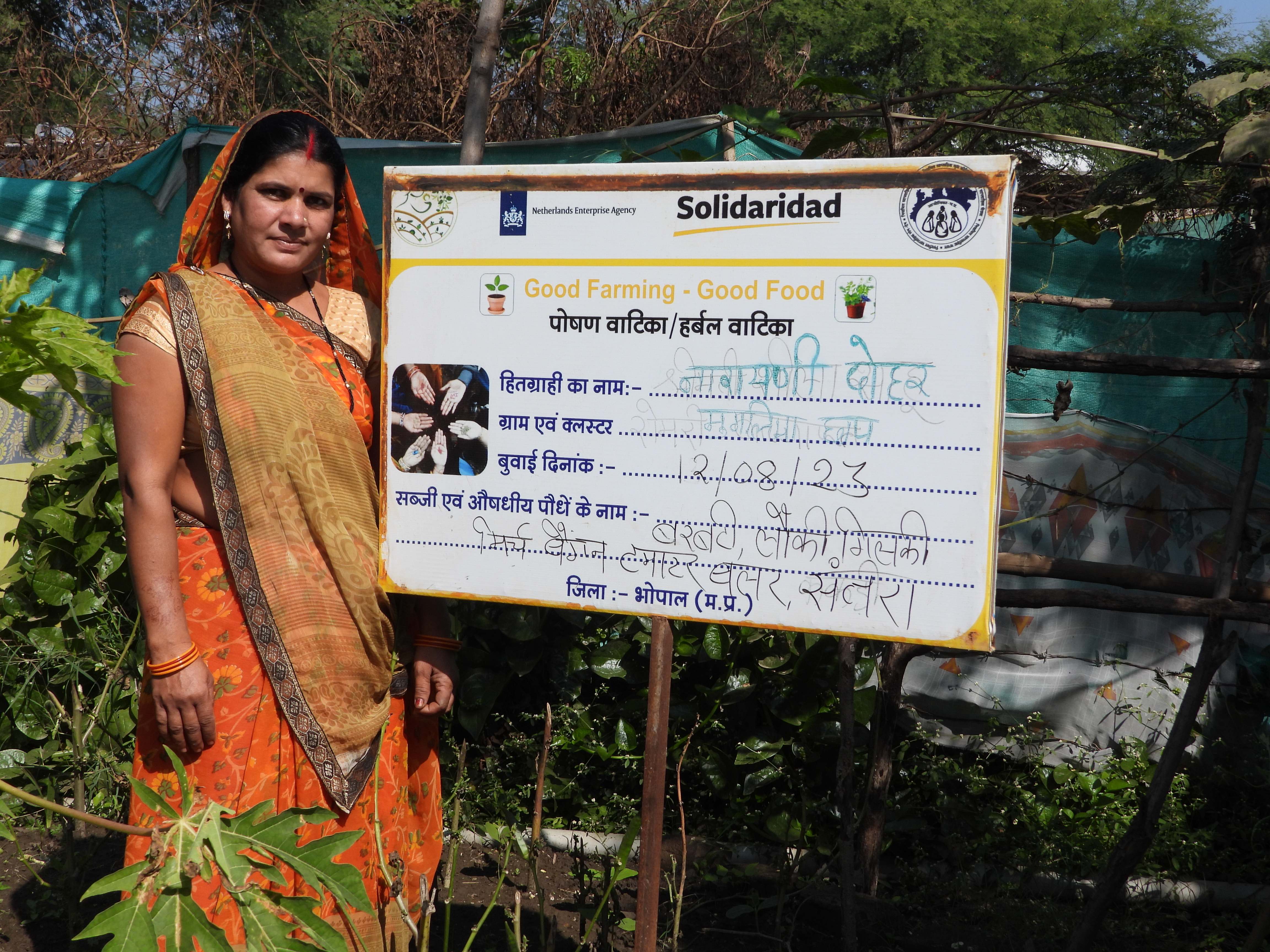
In the village
Mugaliyachhap near Bhopal, Narayani lives a simple life as a homemaker. Until a
couple of years ago, her daily routine was like that of many women in her
community managing the household, taking care of her family of 05 members and
putting everyone else s needs before her own. Narayani, has always had a piece
of land near her house that was not in use and remained bare over the years.
She has always had the desire to use this land, since the size of land was
small, she was not sure how to use it.
Things began to shift
when Jyoti Jatav, the local Nutrition Worker, visited her home as part of Good
Farming–Good Food–Good Health programme. Jyoti handed her a small packet of
seeds for starting a nutrition garden. It
may have looked like a small gesture, but for Narayani ji, it planted more than
just vegetables it planted the idea that she could grow change with her own
hands.
With quiet
determination, she began cultivating her nutrition garden. Over time, leafy
greens, vegetables, and seasonal crops started to fill the space behind her
house. The nutrition garden was designed in such a way that seven different
types of vegetables could be grown at the same time. She also planted a papaya
tree in the garden.
The garden not only
added fresh produce to her family s meals but also gave her a sense of pride
she hadn t felt before. She adds We primarily grow wheat and paddy in our
fields, but this small nutrition garden has added vegetables to our daily
meals. I never imagined that this piece of land could provide us with so much
nutrition. Every month, they are saving around Rs. 1000 to buy vegetables from
the market.
One day, during a
discussion with Jyoti, she learned about the health benefits of soybeans.
Encouraged by the simplicity of the idea, she began mixing just 10% soybean
into her wheat flour. It s been two years now, and she swears by the change—I
feel stronger, more energetic. I fall sick less often, she says with a smile.
Then came another
turning point. Under the Good Farming- Good Food programme she was provided
with a vermicompost bag. Not only did she start using the compost in her own
garden, but she also began selling the extra—earning Rs. 2000 just from
compost! For someone who had never thought of herself as an entrepreneur, this
was a proud moment.
What stands out most
about Narayani is not just her garden or her improved health, but the way she
carries herself now. There’s a quiet confidence in her voice when she talks
about nutrition. She’s more aware, more involved, and more independent.
Ask her about the
biggest change, and she won’t talk about the money or the vegetables—she ll
talk about how she sees herself now. I never thought I could do all this, she
says. But now I know I can.




